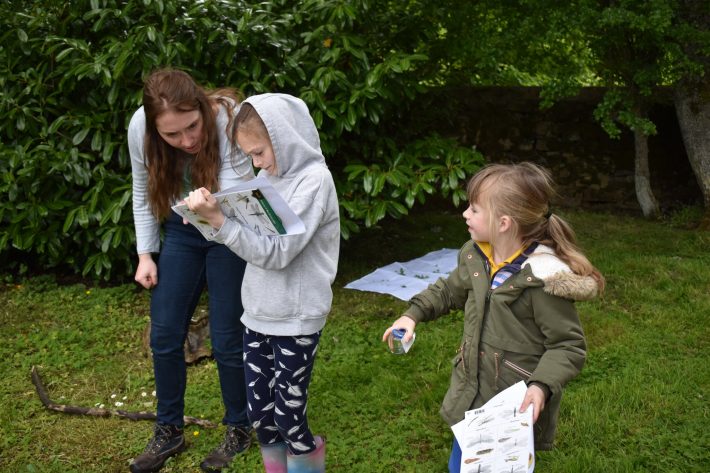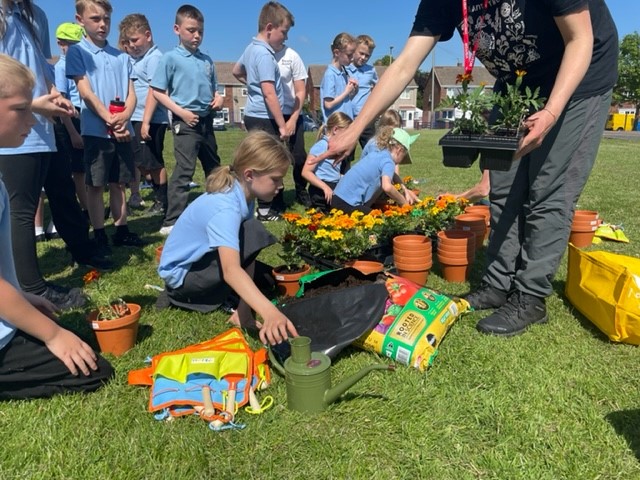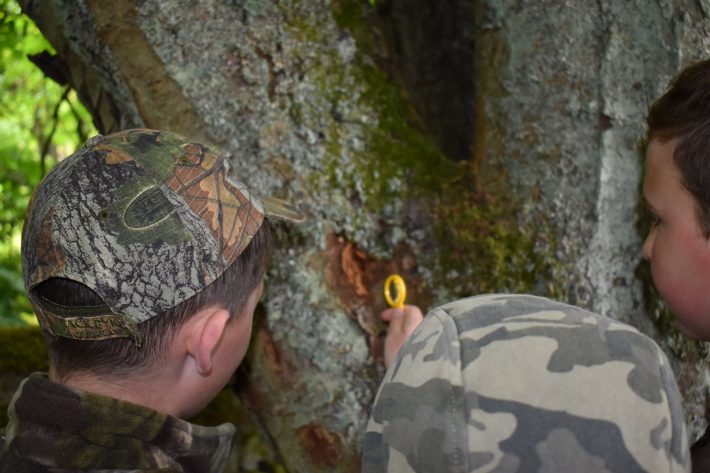Opening school doors to nature in North East England
Over the past 12 months, the British Ecological Society (BES) has been delivering a green transformation to primary schools in North East England, creating wildflower meadows, hedgehog highways and setting up camera traps to connect school children to nature.

The ‘Connecting schools to nature in North East England‘ project aims to improve 10,000 school children’s connection to nature across 47 primary schools in disadvantaged and isolated areas of the North East of England, covering County Durham, North Yorkshire, the Scottish borders and into the Pennines.
The project is being delivered by the BES in partnership with citizen science organisation MammalWeb and engagement charity SMASH-UK and is funded by the UK government’s Green Recovery Challenge Fund and the County Durham Community Foundation and Banks Community Fund.
This has changed the way our children look after our environment. They are excited to learn and to know more about the natural world.
The project has been opening the doors to nature in school grounds through wildlife-friendly activities such as creating wildflower meadows, building hedgehog-highways, and installing insect hotels and camera traps, allowing children to discover and monitor the wildlife in their schools. An online learning portal developed for the project has given school children and teachers the opportunity to track their achievements and aid learning.
The BES has also provided ecology training to teachers across the region through delivering workshops across the partner schools, as well as upskilling 44 volunteers who have been assisting teachers to deliver biodiversity enhancements to school grounds.
This month, the project will enter its third and final phase, focussing on birds. Nest boxes and feeding stations will be installed in schools and children will be able to use binoculars and field guides to conduct bird watches in their schools, identifying and learning about different species and contributing to future scientific research.
A love of and connection with the natural world often starts with an inspiring experience. We want to bring these moments directly to schools.
By providing a green transformation to school grounds in disadvantaged areas, these activities and workshops have been revealing the benefits of nature to those currently least able to access them.
Hannah Milne, a teacher at Willington Primary said: “We’ve really enjoyed taking part in the project so far. The children have particularly enjoyed the online platform (learning how to spot mammals), and using the equipment (footprint traps). It’s given their outdoor learning purpose and their interest in nature has soared.”
Michelle Trotter, a teacher at Dunn Street Primary said: “This has changed the way our children look after our environment. Children regularly ask for the litter pickers and to look after our hedgehogs daily. They are excited to learn and to know more about the natural world. The equipment has been amazing to use and has enhanced our daily teaching. I have shown camera trap images to the whole school and staff who were blown away with what we found.”

Dr Chris Jeffs, former Engagement & Outreach Manager at the British Ecological Society, who has led the project said:
“A love of and connection with the natural world often starts with an inspiring experience. We want to bring these inspirational moments directly to the school and home environment, opening the well-being benefits nature brings to those currently least able to access them.
“In this project, we are providing opportunities for school pupils to really experience nature – and, importantly, to see how small, wildlife-friendly interventions can lead to positive changes.”
Sammy Mason, Outreach Project Officer at the British Ecological Society, said:
“Helping to develop the environmental educators of tomorrow is such an exciting prospect, and vital as we emerge from a pandemic. This project is helping scores of ecologists and educators bridge the covid skills gap, supporting young individuals as they enter the job market and pursue diverse career paths within the environmental sciences.”

Project partner and MammalWeb co-founder, Prof. Philip Stephens (based at Durham University) said:
“Children in the northeast of England have been shown to spend less time outdoors than anywhere else in the country and have limited opportunities to access nature. At the same time, the region is one of the least densely populated regions of England, leaving plenty of potential areas for nature regeneration and becoming a UK biodiversity haven”
Dr Lindsay Keith and Wyn Griffiths, co-founders of SMASH-UK, stated:
“The SMASH-UK principle of ‘in the community, with the community, by the community’ ensures our audiences are heard throughout the design of our educational workshops and innovative digital ‘Encounters Hub’ to explore learning resources and participate in the MammalWeb citizen science project. Immersive experiences are essential for promoting positive change, benefitting both educators and participants, and crucially foster an enhanced connection to nature for the next generation.”
Learn more about our Connecting Schools to Nature project
Like what we stand for?
Support our mission and help develop the next generation of ecologists by donating to the British Ecological Society.